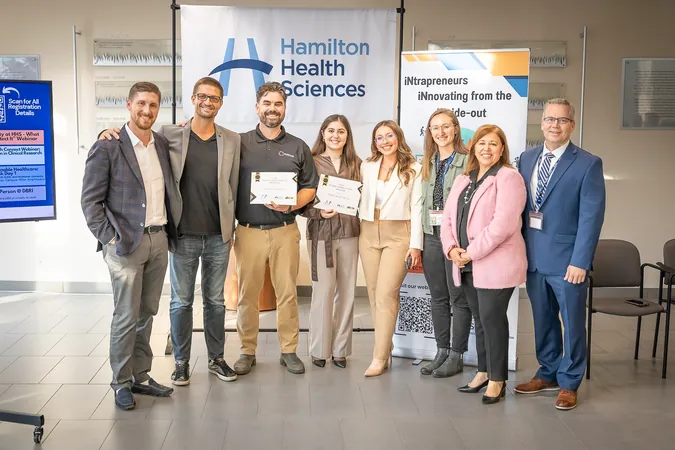
Can Salmon, Beans, and Brown Rice Really Save Your Brain from Vitamin B1 Deficiency? Shocking New Discoveries Revealed!
2024-12-02
Author: Benjamin
Recent research from EMBL Hamburg and the CSSB has shed light on the elusive yet critical nutrient: vitamin B1, also known as thiamine. This vitamin, essential for cell survival, cannot be generated by the human body, making dietary intake vital. Commonly consumed foods like salmon, legumes, and brown rice are often recommended to maintain sufficient B1 levels. Without adequate intake, individuals could face dire consequences, including serious cardiovascular issues, neurological disabilities, and in extreme cases, death.
In a startling turn of events, it appears that vitamin B1 deficiency might not only stem from a lack of consumption but can also develop in hidden ways, particularly in the brain and vital organs, despite seemingly normal levels in the bloodstream. Such deficiencies often slip under the radar, making early detection nearly impossible until severe damage has occurred.
To dissect the factors behind these concealed deficiencies, the researchers employed cutting-edge structural biology techniques. Their focus was on understanding how vitamin B1 traverses the body's systems to reach various tissues, navigating through numerous membranes, notably the notoriously selective blood-brain barrier. This barrier is crucial for blocking toxins but presents a significant obstacle for essential nutrients, including B1.
Key to B1 transportation within the body are transporter proteins, especially two types known as SLC19A2 and SLC19A3. These transporters are integral for moving B1 across critical boundaries like the gut and the blood-brain barrier. Yet, until now, the specific molecular mechanisms of these transporters remained largely a mystery.
Using advanced cryo-electron microscopy, the research team created a “molecular movie” that illuminated the transporter in action. They discovered that if specific regions of the SLC19A3 transporter malfunction, it can severely inhibit B1 transport to the brain, potentially leading to life-threatening neurological conditions.
Additionally, the team’s investigations highlighted the alarming side effects of certain medications. Several commonly prescribed drugs, including some antidepressants and antibiotics, can impair the function of the SLC19A3 transporter. This interference can create dangerous B1 deficiencies that target the brain, often undetectable by standard blood tests. This revelation underlines the urgency in acknowledging medication-related risks, as many health professionals remain unaware of the full spectrum of pharmaceuticals that could induce such deficiencies.
Encouragingly, the researchers have identified seven new drugs that may block the B1 transporter, reinforcing the need for patient monitoring and further studies in this area. These findings lay a foundation not only for improved clinical practices but also for the development of future drugs that bypass these transporter issues entirely.
As the implications of these discoveries continue to unfold, patients and healthcare providers must be vigilant. With the potential to uncover more medications that can cause hidden B1 deficiencies, this research paves the way for a more profound understanding of how our bodies interact with both health and pharmaceuticals.
Stay tuned as more revelations emerge from this critical research, which might just transform how we view dietary health and medication impacts!









 Brasil (PT)
Brasil (PT)
 Canada (EN)
Canada (EN)
 Chile (ES)
Chile (ES)
 España (ES)
España (ES)
 France (FR)
France (FR)
 Hong Kong (EN)
Hong Kong (EN)
 Italia (IT)
Italia (IT)
 日本 (JA)
日本 (JA)
 Magyarország (HU)
Magyarország (HU)
 Norge (NO)
Norge (NO)
 Polska (PL)
Polska (PL)
 Schweiz (DE)
Schweiz (DE)
 Singapore (EN)
Singapore (EN)
 Sverige (SV)
Sverige (SV)
 Suomi (FI)
Suomi (FI)
 Türkiye (TR)
Türkiye (TR)